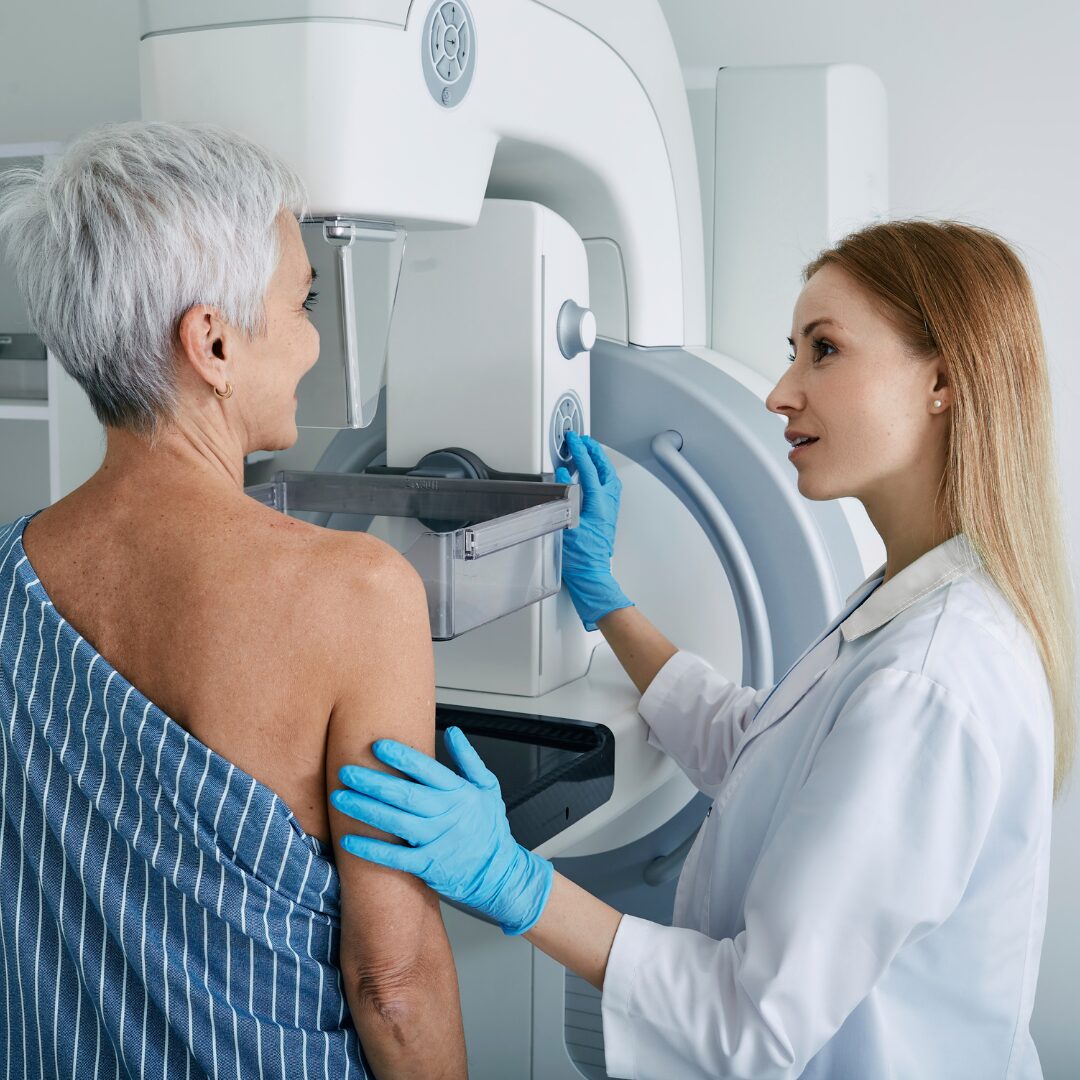Quick Overview: Reproductive Care in Your 40’s & 50’s
As women enter their 40’s and 50’s, they experience significant changes in reproductive health and overall wellness, particularly with the onset of menopause. This guide provides essential tips and strategies to help women maintain optimal health during this transformative stage of life. By staying on top of mammograms and Pap smears, and adopting lifestyle changes that support bone density and cardiovascular health, women in their 40’s and 50’s can maintain strong reproductive health.
Build Upon the Reproductive Health Practices from Your 20’s & 30’s
Menopause typically occurs in your late 40’s to early 50’s and marks the end of menstrual cycles. Understanding and managing menopause symptoms can help you feel more comfortable and in control.
Common Menopause Symptoms include:
- Hot Flashes: Sudden feelings of warmth, often accompanied by sweating and flushing.
- Night Sweats: Intense sweating during sleep that can disrupt rest.
- Irregular Periods: Changes in menstrual cycle frequency and flow.
- Mood Changes: Increased irritability, anxiety, or mood swings.
- Sleep Disturbances: Difficulty falling or staying asleep.
- Vaginal Dryness: Discomfort or dryness in the vaginal area, which can affect sexual activity.
- Decreased Libido: A decline in sexual desire.
For symptom management, it’s best to consult with a healthcare provider for more personalized options, but lifestyle changes such as regular exercise, a balanced diet, and stress-reduction techniques can all be beneficial.
Prioritize Regular Health Screenings Like Mammograms, Pap Smears
Mammograms: Why They Matter and What You Need to Know
A mammogram is an X-ray of the breast used to detect and diagnose breast cancer. It can often spot cancer before you or your doctor feel any lumps. Early detection is critical because it allows for faster treatment, which can improve outcomes and increase the chances of a full recovery. Regular mammograms, recommended for women over 40 or those with specific risk factors, help detect potential issues, even in the absence of symptoms.
Guidelines for How Often to Get a Mammogram
The American Cancer Society recommends the following frequencies:
- Women aged 40 to 44 have the option to begin annual mammogram screenings and are recommended to consult with their provider.
- For women aged 45 to 54, yearly mammograms are recommended.
- Women 55 and older may opt for mammograms every two years, though they can choose to continue with annual screenings if preferred. Screening should persist as long as the woman is in good health and expected to live at least another 10 years. It’s important for all women to be informed about what mammograms can and cannot detect in breast cancer screening.1

Obria Offers Low Cost Well Woman Exams and Pap Smears.
Take charge of your reproductive health today and book an appointment at an Obria Medical Clinic near you.
What to Expect During a Mammogram
Arrival and Preparation:
- When you arrive for your mammogram, you’ll be asked to change into a hospital gown. It’s best to wear a two-piece outfit so you can easily remove just the top half.
Positioning:
- You’ll be guided to a mammography machine where you’ll stand in front of it. Your breast will be placed on a flat, hard surface called the plate.
Compression:
- A second plate will gently lower and compress your breast to spread out the tissue. This compression helps create clearer images and might feel slightly uncomfortable or tight, but it should be brief.
Imaging:
- The machine will take X-ray images from different angles. You’ll be asked to hold still and sometimes to hold your breath briefly while the images are taken. The entire process usually takes just a few minutes.
Completion:
- After the images are captured, the plates will be removed, and you can get dressed. You may be asked to wait a short time for the radiologist to review the images and determine if any additional views are needed.
Results:
- Your mammogram images will be analyzed by a radiologist. Results are usually sent to your healthcare provider, who will discuss them with you. If additional tests or follow-ups are needed, your provider will guide you on the next steps.
While Obria Medical Clinics do not perform Mammograms, we are happy to use our network of resources to recommend a provider to you for this service.
Pap Smears in Your 40’s & 50’s
In your 40’s and 50’s, continuing regular Pap smears and HPV testing remains essential for monitoring cervical health. Pap smears, typically recommended every 3 to 5 years, help detect any abnormal cells on the cervix that could lead to cancer if left untreated. HPV testing, often done alongside Pap smears beginning at age 30, checks for high-risk strains of the human papillomavirus, which are linked to cervical cancer. As you age, these tests become crucial for early detection and prevention, allowing for timely intervention if necessary.
Summary
Taking proactive steps to manage your reproductive and overall health in your 40s and 50s will support your well-being and quality of life. Embrace this stage with knowledge and self-care practices and maintain a strong partnership with your healthcare provider to navigate these years with confidence and vitality. For personalized guidance and to schedule your health screenings, reach out to your healthcare provider today.
Your content goes here. Edit or remove this text inline or in the module Content settings. You can also style every aspect of this content in the module Design settings and even apply custom CSS to this text in the module Advanced settings.
Take charge of your health!
Obria Medical Clinics offers Pap smears and HPV testing to help you stay proactive. Book your Well-Woman Exam today!

